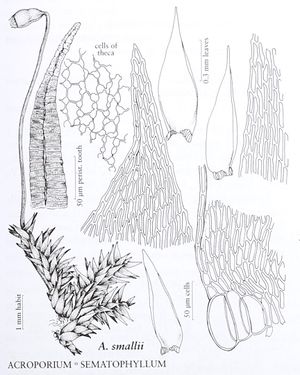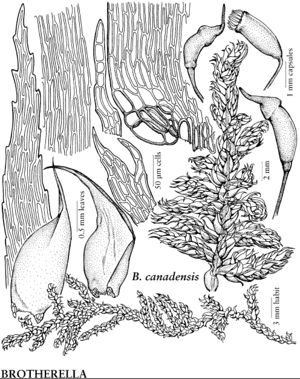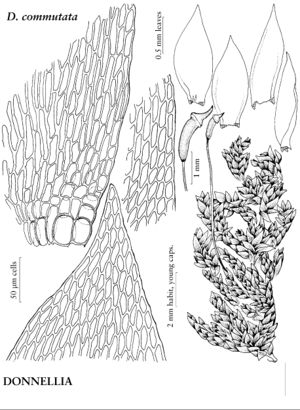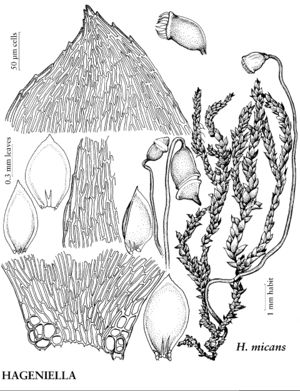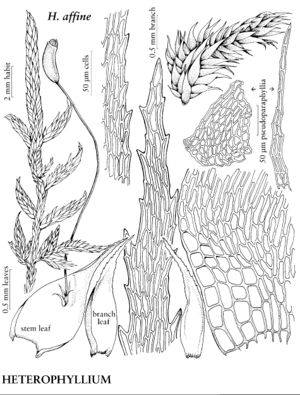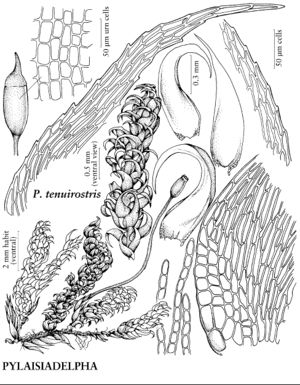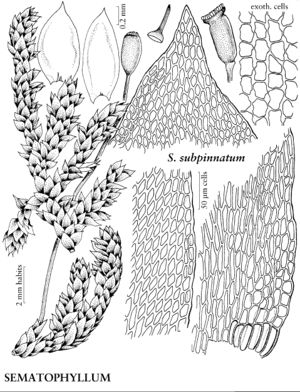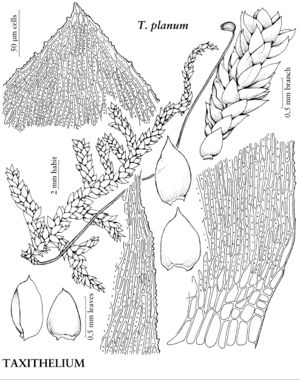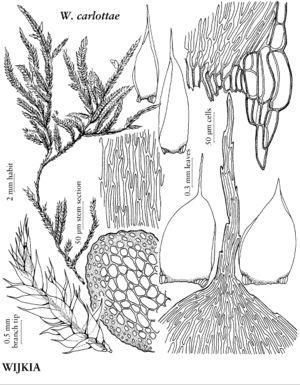Plants in small to large mats, usually golden to yellow-green, glossy or dull. Stems reddish green or sometimes redbrown, reclining or sometimes erect or arching, complanate-foliate or not, irregularly branched to pinnate; pseudoparaphyllia foliose or filamentous. Stem-leaves erect-spreading, widespreading, falcate-secund, or homomallous, lanceolate to broadly ovate, tapering gradually or abruptly to apex; margins often toothed in acumen; apex acute to acuminate; ecostate or costa double, short; alar region well defined, pigmented, cells in proximal row strongly elongate and inflated, or not inflated and walls thicker; laminal cells usually flexuose, smooth or papillose (serially or 1-papillose); medial cells occasionally linear. Branch leaves smaller, narrower; alar cells less strongly differentiated. Specialized asexual reproduction by flagelliferous branches or axillary filamentous propagula. Sexual condition synoicous, dioicous, phyllodioicous, or autoicous. Seta reddish-brown, red, or light-brown, elongate, smooth. Capsule inclined or erect, cylindric or ovoid; exothecial cell-walls usually collenchymatous, irregularly thickened; operculum usually rostrate; peristome double. Calyptra cucullate [mitrate].
Distribution
Nearly worldwide, predominantly tropical to temperate regions
Discussion
Genera 40, species ca. 150 (9 genera, 15 species in the flora).
Sematophyllaceae are a reasonably coherent family, based on the genera in the flora area, but in the tropics the boundaries are more difficult to define.
Selected References
None.
Lower Taxa
Illustrations
Key
| 1 | Laminal cells 1-seriate multipapillose | > 2 |
| 1 | Laminal cells smooth or rarely 1-papillose | > 3 |
| 2 | Stems complanate-foliate; alar cells enlarged or weakly inflated; sexual condition autoicous. | Taxithelium |
| 2 | Stems not complanate-foliate; alar cells inflated; sexual condition dioicous or phyllodioicous. | Wijkia |
| 3 | Alar cells enlarged, quadrate or rectangular, walls thick, middle lamella apparent. | Heterophyllium |
| 3 | Alar cells usually inflated, rounded or sometimes elongate, walls usually thin, middle lamella not apparent | > 4 |
| 4 | Alar region in 1 row, supra-alar cells not apparently differentiated. | Acroporium |
| 4 | Alar region in 1-several rows; supra-alar cells differentiated | > 5 |
| 5 | Capsules erect to suberect. | Donnellia |
| 5 | Capsules usually inclined | > 6 |
| 6 | Leaf margins entire. | Sematophyllum |
| 6 | Leaf margins serrate to serrulate near apex (rarely entire in Brotherella henonii) | > 7 |
| 7 | Stems complanate-foliate; leaves erect-spreading to falcate-secund, especially at shoot and branch apices. | Brotherella |
| 7 | Stems not complanate-foliate; leaves usually not falcate-secund | > 8 |
| 8 | Stem leaves ovate. | Hageniella |
| 8 | Stem leaves lanceolate to oblong-lanceolate, or if ovate, then apex long, abruptly piliferous | > 9 |
| 9 | Leaves strongly curved; alar cell walls thick, supra-alar cells many, quadrate. | Pylaisiadelpha |
| 9 | Leaves straight; alar cell walls thin, supra-alar cells few, quadrate to rhombic. | Wijkia |
